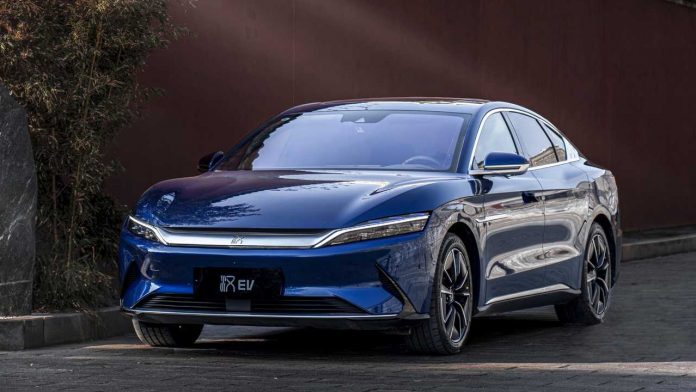To increase the adoption of EVs, Contemporary Amperex Technology CO (CATL), the largest battery manufacturer in the world, is collaborating with one of America’s most distinguished automakers.
Ford Motor and CATL initially signed a cooperation agreement that supplies Chinese batteries. For the electric version of the American-crafted pickup truck and the Mustang Mach-E as EVs and their components become central to US industrial policy and rebuilding domestic manufacturing.
This commitment to advancing Ford’s EV ambitions through initiatives like CATL enabled Tesla to overtake other major EV producers. The automaker trails Musk’s business in terms of EV sales in the country. Ford claimed to have the best-selling electric truck on the market, but since the model went on sale in May, it has only sold 15,617 electric F-150 Lightnings. Ford’s EVs increased at “double the rate of the general EV category,” its vice president of sales, distribution, and trucks, Andrew Frick, remarked last week. With a consistent supply of batteries from CATL, that might rise quickly.
These industrial powerhouses coming together to make the EV dream a reality contrasts sharply with the political rhetoric currently in use and the objectives of the Inflation Reduction Act, which wants to reduce dependence on China as the US expands its domestic supply chains. The global supply chains, technologies, and investments can’t separate to seek out better opportunities elsewhere. To maximize their profits, companies like CATL and Ford will have to work together to harness skills critical to the industrial value.
Despite all the arguments about how US-China tensions may alter plant layouts and supply lines, big corporations will, ultimately, win. On the other hand, it might result in passing up chances, money, and time. Ford and CATL, for instance, might develop a framework that allows the American manufacturer to continue receiving US tax credits while avoiding concerns with sourcing and domestic content.
Additionally, CATL will profit from bringing home fees and other royalties. However, the number of EVs on the road will decline, and adoption will be slower. Ultimately, despite spending billions of dollars, it results in a longer and more difficult journey toward cleaner air.
Did you enjoy this article? Please share your thoughts, comments, or questions regarding this topic by connecting with us at newsroom@cbtnews.com.
Be sure to follow us on Facebook, LinkedIn, and TikTok to stay up to date.
While you’re here, don’t forget to subscribe to our email newsletter for all the latest auto industry news from CBT News.



